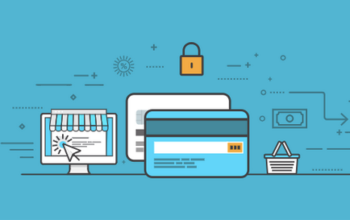You probably share more with the internet than you do with your friends and family. And by the “internet”, we sort of mean a monolith. But the internet consists of the billions of users, and there’s the (relatively) old adage that goes “the internet is forever”. Generally, this means that whatever gets stored or posted online will be there forever, no matter what you try to delete, remove, or get rid of. Somewhere, on some server, a version of that data exists. Scary, isn’t it?
Look, we’re not trying to scare you, but we’re just presenting the reality of what the internet is really like. There’s a point to this, we promise. Remember when you typed your credit card details into your favorite online shopping portal? Or the numerous times you’ve requested a quote for a service and gave them your mobile number and physical address? Yes, you were hounded with spam telemarketing calls for weeks after that, but it seemed like a good idea at the time. Interestingly enough, those spam calls you received weren’t just from the company you gave your number to – you definitely noticed an influx of calls since then. This means your data travels. But it doesn’t travel for free. Corporations, hackers, identity thieves, and fraudsters pay big money for data scraped or stolen from the internet. People finder sites, too, keep your information on their databases. OneRep makes it possible for you to get your information removed from these websites automatically, by the way.
When your information floats around online, it creates a real problem from many angles. Identity thieves are a huge threat today, and the problem is only increasing, but this is not the only threat on the rise when people have access to your information. Today, the prevalence of swatting is becoming a serious issue, especially for gamers who often engage with each other on competitive online platforms.
What Is Swatting?
It has nothing to do hitting a fly or mosquito out of the air, although the idea may be linked if you look deep enough into it. Swatting is, in fact, a type of harassment. Attackers attempt to trick police forces into sending heavily armed strike forces to their victim’s residence or business address. These heavily armed striked forces often turn out to be SWAT teams. There’s the “aha” moment which tells you exactly where the term comes from. Swatting essentially creates a false emergency – the person who created the emergency usually doing it with malicious intent. This is more than just an innocent prank, and has serious repercussions, that have even resulted in death in many cases. This is the reason why swatting carries heavy penalties today.
For many first responders who have been dispatched to the location of the “emergency”, swatting has shown just how dangerous it can be. First, swatting means takes away emergency personnel and resources from where they really need to be and from people who really need help.
What Do Attackers Wish to Achieve When Swatting Others?
Basically, it’s all about the thrill of the experience and is something of a power trip. Attackers wish to make victims fear for their lives, as well as to put victims’ lives at risk. Due to the kinds of “emergencies” that are reported by swatting, it results in heavily armed police forces often charging into victims’ homes – with little or no warning. Clearly, you can understand the kind of reactions that would ensue in such a situation.
How to Prevent Swatting?
We’ve made mention earlier of all that information about you that’s available online. Turns out, there was a good reason for that. Swatting occurs when attackers begin to dox their victims. Doxxing is when people trawl the internet to find information about you without your consent. This personal information that could be doxxed includes your social security number, mobile number, and, you guessed it, physical location or address. For these attackers, getting your physical address without your consent is the key to swatting, of course. This could be your home address or business address. While reading this, you probably think that this falls into the realm of hacking or data stealing. You’d be correct. While swatters may not necessarily do the hacking themselves, they’ll find ways of attaining your private location information from various sources on the internet, including buying data related to you from dark web data brokers. This makes it all the more important to stay aware and cautious about where you post your information online and how securely your data is stored.
Use Identity Protection Services
Identity protection services cannot prevent your identity or personal information from being stolen from the internet. What identity protection protection software does, however, is monitor your information online and whether it has been exposed or compromised at all. We’d recommended reading this IDShield review or learning more about other identity protection services like Norton LifeLock to see exactly how this kind of software can help you with recovery and minimize the risk of swatting in the event of your personal data, including your physical address, being compromised.
Remove Your Information from the Web
This seems like a mammoth task, so how do you start? Preventative measures are a great way to begin, so don’t let your browser remember your physical address for tools like auto-fill when filling out forms, for example. Information about where you live may be easily available on people finder sites, too, since these sites collect information from a publicly-available database. Manually request for these sites to remove your info, or use OneRep to have them get your information automatically removed, even when it gets repeatedly stored on these databases.
Use Common Sense Online
Don’t divulge personal information to just anyone online. Remember the golden rule your parents taught you when you were a kid? Don’t talk to strangers. This is especially true when we’re online, since you often have absolutely no clue who the person on the other end of the line is or what they look like. It’s really easy to lie online, so unless you know who you’re talking to on a gaming platform or social media site, keep important information about your life to yourself. Additionally, keep your location settings off and ensure that your screen names are vague so as to not identify who you are to others who might want to seek retribution for beating them online, or have the wise idea that swatting you might be a good idea.
Related Posts












